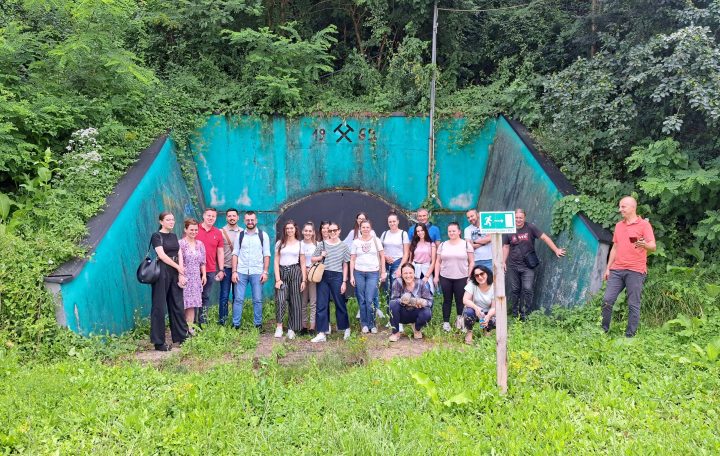As part of the SeconChan project and with additional support from the DeepGreenInno project, a study visit to the salt mine in Tuzla was organized during June.
On this occasion, teachers, associates and students of the Chemistry Department had the opportunity to learn more about the technological process in the Tetima deposit, where sodium chloride is exploited by extraction from a depth of about 800 meters. The exploitation process is fully automated with the use of very sensitive sensors and a remote control system. After extraction, the salt concentrate is transported over 16 kilometers to two large industries, a table salt factory and a sodium bicarbonate factory. Our team’s special attention was drawn to the carefully designed solutions for preserving the natural habitat and preventing landslides in the mine area.
The visit was also a good opportunity to discuss other possible applications of sodium chloride, especially in technologies that enable the so-called green transition. Research into sodium-based battery technology has recently attracted the attention of the scientific community as a potentially viable replacement for lithium batteries and the risks associated with the production and use of lithium-based batteries. Although still in the research phase, sodium-based batteries could soon become competitive with lithium batteries in terms of charge density and reliability, and especially because of the low cost of the raw material. Through the discussion, which aimed to develop entrepreneurial spirit and critical thinking, the students had the opportunity to see the salt deposit in Tuzla as a potential raw material base for the production of batteries in the future.
Link:
